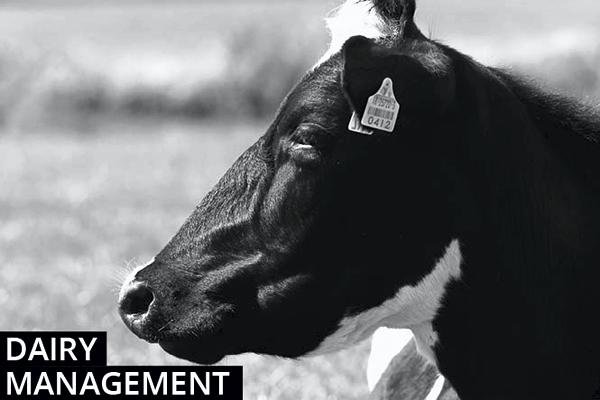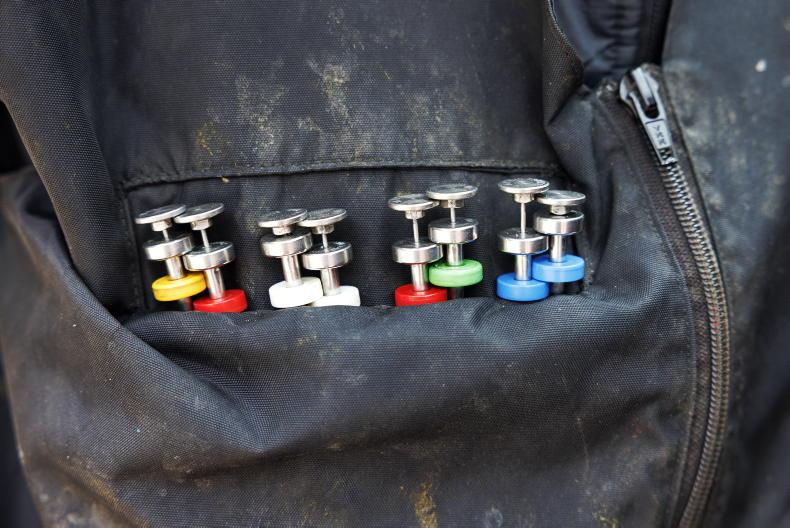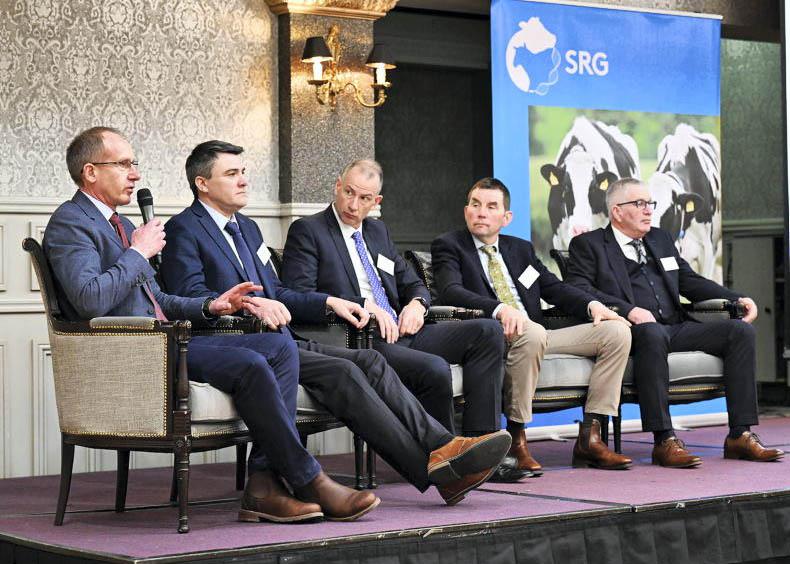Reseeding: I see more paddocks ploughed on my travels, as farmers decide to reseed with silage in the pit and growth rates holding up. Many farmers will plough and then decide to one-pass in the grass seed. The best advice from contractors and advisers seems to be to roll after ploughing to knock out air pockets and flatten out the sods before the one-pass. Otherwise, a year or so later the field will get lumpy to travel as air pockets and sods flatten out at different levels.
Breeding: I was on a good number of farms this week and the clean-up stock bull is still out or AI is continuing. Some farmers discussed leaving the bull out with the herd for another week or two at least, as most farmers suggest a cow will be worth more in-calf rather than not in-calf next spring. This depends on a number of factors, but also on the farm goal to produce more milk or not in a quota-free world post April 2015.
The number of replacements available to come into the herd to match this goal is also important when making decisions like this. At this stage, in most spring-calving herds we are talking about a very small number of cows, as the majority of cows are in-calf. Holding onto cows with bad legs, or cows with udders hitting the ground, is not practical.
For many farms, the best thing that could happen is to get rid of these cows before the autumn to help reduce superlevy milk next spring and reduce wintering costs on cows that won’t fatten well next winter.
Quota: It is clear from our co-op surveys that the country is well over quota and it is up to individual farmers to make decisions on what to do this coming autumn or early next spring. Already farmers are beginning to plan and some have stopped feeding meal as they have too many cows for the quota they have available.
With good grass supply, their decision is to produce milk from grass. Others are planning to once-a-day milk from August onwards or from early next spring. Short-term once-a-day milking will not impact performance. You do have to be mindful of cell count because once-a-day milking of high cell count cows will increase bulk cell count levels. You might be better off drying off these cows fully than trying to milk them once a day.
Cleaning: With field work quieter and breeding coming to a finish, it is an opportune time to get cubicle houses and yards cleaned down and power washed. Like anything else, power washing is not essential, but it does help to give a good impression of the farm to any visitors and it also reduces flies and dirt around the farm.
Disinfecting from year to year and letting the cubicles dry out fully will also help to break any disease cycle that’s circulating around the shed. This is also a good time to paint any areas that need maintenance and have the shed ready for next winter. Nothing wrong with doing it now instead of the weekend before the cattle are due in next autumn.
Reseeding: I see more paddocks ploughed on my travels, as farmers decide to reseed with silage in the pit and growth rates holding up. Many farmers will plough and then decide to one-pass in the grass seed. The best advice from contractors and advisers seems to be to roll after ploughing to knock out air pockets and flatten out the sods before the one-pass. Otherwise, a year or so later the field will get lumpy to travel as air pockets and sods flatten out at different levels.
Breeding: I was on a good number of farms this week and the clean-up stock bull is still out or AI is continuing. Some farmers discussed leaving the bull out with the herd for another week or two at least, as most farmers suggest a cow will be worth more in-calf rather than not in-calf next spring. This depends on a number of factors, but also on the farm goal to produce more milk or not in a quota-free world post April 2015.
The number of replacements available to come into the herd to match this goal is also important when making decisions like this. At this stage, in most spring-calving herds we are talking about a very small number of cows, as the majority of cows are in-calf. Holding onto cows with bad legs, or cows with udders hitting the ground, is not practical.
For many farms, the best thing that could happen is to get rid of these cows before the autumn to help reduce superlevy milk next spring and reduce wintering costs on cows that won’t fatten well next winter.
Quota: It is clear from our co-op surveys that the country is well over quota and it is up to individual farmers to make decisions on what to do this coming autumn or early next spring. Already farmers are beginning to plan and some have stopped feeding meal as they have too many cows for the quota they have available.
With good grass supply, their decision is to produce milk from grass. Others are planning to once-a-day milk from August onwards or from early next spring. Short-term once-a-day milking will not impact performance. You do have to be mindful of cell count because once-a-day milking of high cell count cows will increase bulk cell count levels. You might be better off drying off these cows fully than trying to milk them once a day.
Cleaning: With field work quieter and breeding coming to a finish, it is an opportune time to get cubicle houses and yards cleaned down and power washed. Like anything else, power washing is not essential, but it does help to give a good impression of the farm to any visitors and it also reduces flies and dirt around the farm.
Disinfecting from year to year and letting the cubicles dry out fully will also help to break any disease cycle that’s circulating around the shed. This is also a good time to paint any areas that need maintenance and have the shed ready for next winter. Nothing wrong with doing it now instead of the weekend before the cattle are due in next autumn.










SHARING OPTIONS